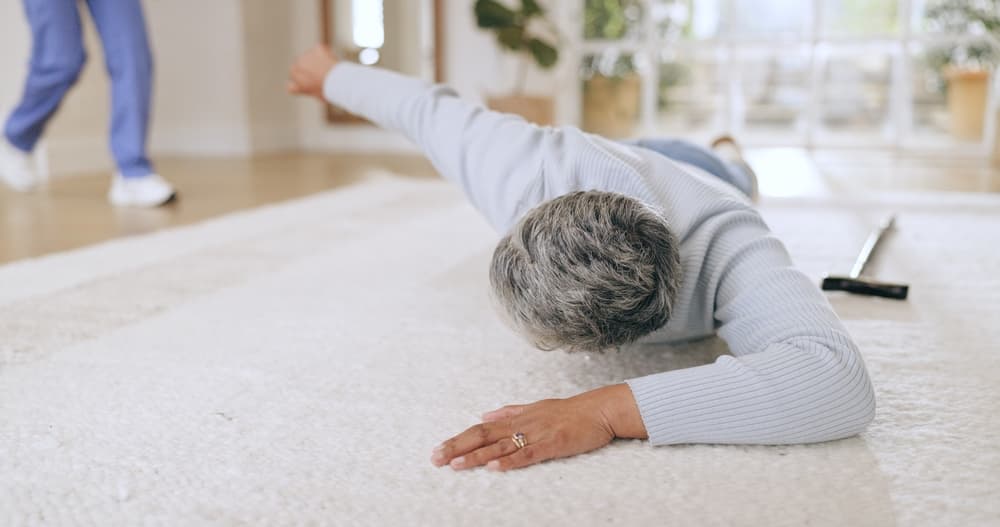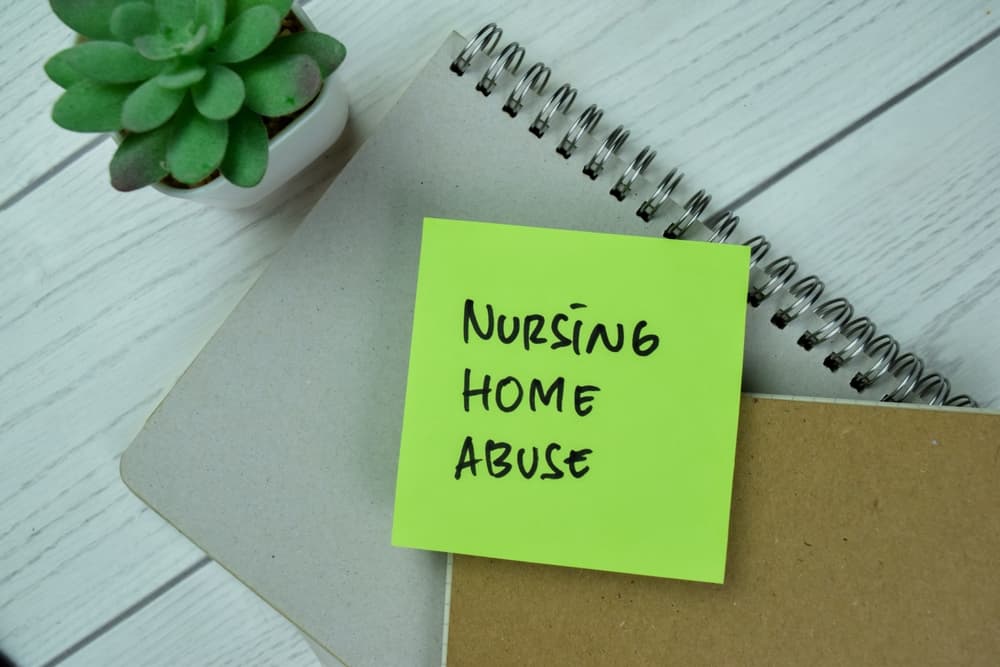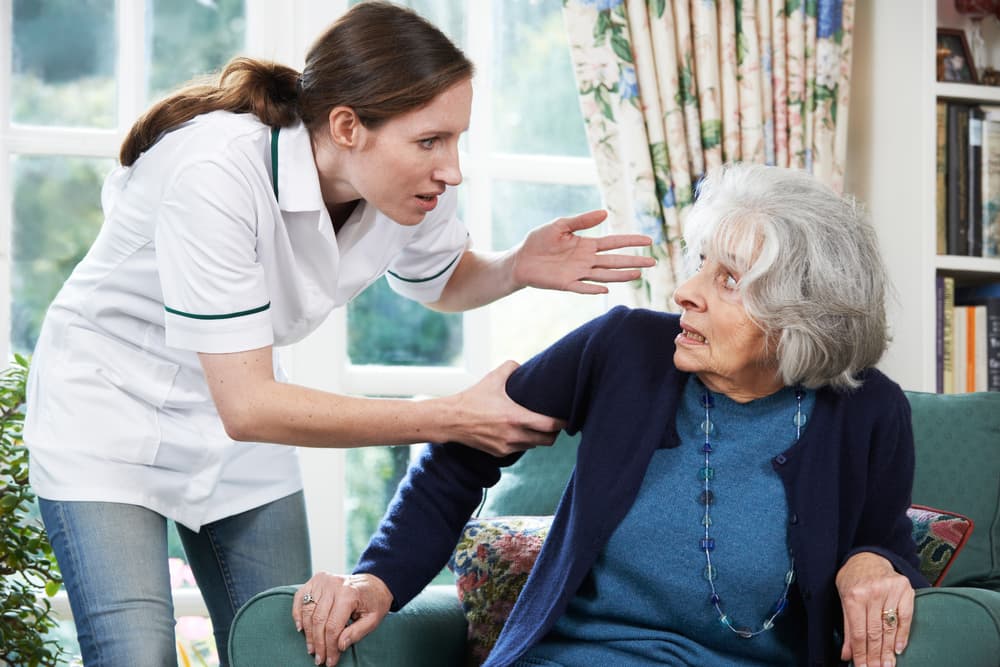When a loved one moves into a nursing home, families expect that the staff will provide a safe environment and proper care. However, falls remain among the most common causes of injuries in long-term care facilities. A single fall can lead to severe health complications, including fractures, head trauma, and loss of mobility. If a nursing home resident falls, families must act quickly to protect their well-being and determine whether negligence played a role.
This guide explains what to do if your loved one falls in a nursing home, how to determine liability, and when legal action may be necessary. Reach out to a nursing home abuse lawyer near you today.
Immediate Steps to Take After a Nursing Home Fall

When a fall occurs in a nursing home, taking the right steps as soon as possible is important. Proper documentation and medical evaluation can help identify injuries, determine the cause of the fall, and provide evidence in case legal action becomes necessary.
Ensure Immediate Medical Care
Regardless of whether the resident appears injured, a complete medical examination is necessary. Some injuries, such as internal bleeding or head trauma, may not be immediately noticeable. If needed, staff should call for emergency medical assistance, and families should follow up with independent medical providers.
A thorough evaluation should check for:
- Head injuries, including concussions and brain trauma.
- Broken bones, especially hip fractures, which are common in elderly fall victims.
- Internal bleeding or organ damage.
- Sprains, bruises, and other soft tissue injuries may worsen over time.
Request an Incident Report
Nursing homes must document falls in an official incident report. This report should include:
- The date, time, and location of the fall.
- Statements from staff members on duty.
- Was any medical care provided immediately after the fall?
Families have the right to request a copy of this report. If the nursing home refuses to provide it, this may be a sign that the facility is trying to avoid responsibility.
Document Everything
If legal action is needed later, gathering evidence immediately after a fall is necessary. Families should:
- Take photographs of any visible injuries.
- Document where the fall occurred, including any hazards such as wet floors or poor lighting.
- Keep a written record of conversations with staff members.
If the resident can communicate, ask them what happened. Some nursing home residents may be hesitant to speak up because they fear retaliation from staff.
Speak with Witnesses
Other residents, visitors, or staff members may have seen what happened. Their statements can provide valuable insight into the cause of the fall. Families should gather contact information from potential witnesses and ask if they are willing to give a written or recorded statement.
Who Can Be Held Responsible for a Nursing Home Fall?
Falls in nursing homes do not always happen by accident. Facilities have a responsibility to provide a safe environment and adequate supervision. The nursing home may be held accountable if a resident falls due to negligence.
Nursing Home Facility Responsibilities
South Carolina nursing homes must take precautions to reduce the risk of falls. This includes:
- Assess each resident’s fall risk upon admission and update evaluations regularly.
- Providing mobility aids such as walkers, wheelchairs, or handrails.
- Ensuring that hallways, bathrooms, and common areas are free from tripping hazards.
- Monitor residents who have difficulty walking or suffer from conditions that increase fall risk.
Failure to meet these responsibilities can make the facility liable for fall-related injuries.
Staff Negligence and Improper Supervision
Nursing home staff play a significant role in fall prevention. When facilities are understaffed or caregivers fail to assist, residents may be left unattended, leading to preventable falls.
Negligence can include:
- Delayed response to a resident’s request for help.
- Failing to assist with transfers from a bed to a wheelchair.
- Administering medications that cause dizziness or drowsiness without proper monitoring.
The nursing home may be held responsible if a fall occurs due to inadequate supervision or improper care.
Unsafe Conditions in the Facility
Poor facility maintenance can increase the likelihood of falls. Common hazards include:
- Slippery or uneven floors.
- Poor lighting in hallways or bathrooms.
- Lack of grab bars or handrails in necessary areas.
- Clutter or obstructions in walking paths.
If a fall occurs due to these conditions, the facility may be negligent for failing to maintain a safe environment.
Third-Party Liability
Third parties may sometimes share liability for a nursing home fall. This can include:
- Contractors responsible for building maintenance who fail to repair hazards.
- Medical professionals who prescribe medications that increase fall risk without proper monitoring.
Determining liability requires a thorough investigation of the circumstances surrounding the fall.
How to Prove Negligence in a Nursing Home Fall Case
Families must prove that negligence contributed to the fall to hold a nursing home accountable. The following steps can help establish liability.
Medical Records as Evidence
Medical records can reveal the extent of a resident’s injuries and whether they are related to a fall-related incident. They may also show signs of previous falls that went undocumented. If a resident has repeated injuries without a clear explanation, this could indicate a pattern of neglect.
Surveillance Footage and Facility Records
Many nursing homes have security cameras that may have recorded the fall. If footage exists, families should request a copy as soon as possible.
Other important records include:
- Staffing schedules to determine whether enough caregivers were on duty.
- Facility maintenance logs to check whether hazardous conditions were reported or ignored.
- Previous complaints or violations related to fall prevention.
State and Federal Nursing Home Regulations
South Carolina nursing homes must follow safety guidelines established by state and federal agencies. Violations of these regulations can support a legal claim. Families can check for past complaints or safety violations through government inspection reports.
Previous Complaints and Inspections
If a nursing home has a history of falls or safety violations, this can strengthen a case. Past inspection reports and complaints filed with regulatory agencies can provide evidence of ongoing issues.
How Long Do You Have to File a Lawsuit in South Carolina?
South Carolina law sets a deadline for filing legal claims related to nursing home injuries. Families must act within the required timeframe to seek compensation for medical expenses, pain and suffering, and other damages. Always speak with a South Carolina nursing home fall attorney to ensure your claim is filed within the required timeframe and to determine whether any exceptions may apply to your case.
Legal Deadlines for Filing a Nursing Home Fall Case
The statute of limitations for personal injury cases in South Carolina generally allows three years from the date of the fall to take legal action. Waiting too long can result in losing the right to file a claim. Under the South Carolina Tort Claims Act, the deadline is reduced to two years if the lawsuit involves a government-operated nursing home.
When Does the Clock Start?
The timeframe typically begins on the date of the fall. However, in cases where the injuries were not immediately apparent, the three-year period may begin when the injury was discovered or reasonably should have been discovered.
Exceptions That May Extend the Deadline
Certain circumstances may alter the statute of limitations, such as:
- Mental Incapacity or Minority Status. If the injured resident is legally incapacitated or under 18, the deadline may be extended until they regain capacity or reach adulthood.
- Fraud or Concealment. If the nursing home intentionally hides evidence of negligence, the filing period may be extended.
- Government-Operated Facilities. Families may only have two years to file a claim if a government entity runs the nursing home.
Given these variations, it is essential to consult a legal professional as soon as possible to determine how much time remains to take action.
Signs That a Fall May Be Linked to Neglect
Not every fall in a nursing home results from wrongdoing, but sure signs suggest that negligence played a role. Families should watch for indicators that their loved one’s fall may have been preventable.
Unexplained Delays in Medical Care
Immediate medical attention is necessary after a fall, especially for elderly residents with fragile bones or underlying health conditions. If staff members do not seek medical care immediately, this could indicate neglect. Delayed treatment can worsen injuries and lead to further complications.
Multiple Falls in a Short Period
If a resident falls more than once in a short timeframe, this may suggest a failure to assess their needs properly. Nursing homes should take action after a fall, such as increasing supervision, adjusting medications, or providing assistive devices. Repeated falls may indicate that staff have ignored these steps.
Changes in Behavior or Health Decline
After a fall, some residents may exhibit increased anxiety, withdrawal, or signs of pain that staff dismiss or overlook. If a loved one suddenly seems fearful, less mobile, or unusually quiet, they may not be receiving the attention they need.
Staff Avoiding Questions About the Fall
If nursing home staff members hesitate to provide details about what happened, this could suggest an attempt to hide negligence. A lack of clear answers or inconsistent explanations should raise concerns. Families should request documentation and consider further action if information is withheld.
How an Attorney Can Help After a Nursing Home Fall
Pursuing legal action after a fall can be challenging, especially when nursing homes deny responsibility. An attorney can help families determine whether they have grounds for a claim and take the necessary steps to hold the facility accountable.
Investigating the Fall and Gathering Evidence
Legal professionals can obtain records that may not be easily accessible to families. This includes:
- Surveillance footage, which may show unsafe conditions or lack of supervision.
- Medical reports detailing injuries linked to the fall.
- Staffing logs that indicate whether there were enough caregivers on duty.
- Prior complaints or violations that establish a pattern of negligence.
By reviewing this evidence, an attorney can determine whether the nursing home failed to meet its duty of care.
Holding the Nursing Home Accountable
If negligence played a role in the fall, legal action may lead to compensation for:
- Medical expenses related to treatment and rehabilitation.
- Pain and suffering experienced by the resident.
- Expenses incurred due to necessary changes in care, such as moving to another facility.
A claim can also expose unsafe conditions and prevent similar incidents from happening to other residents.
Negotiating with Insurance Companies
Nursing homes and insurers often try to minimize claims or shift blame onto residents. Legal professionals can handle negotiations to ensure that families receive fair compensation. They can use counter tactics such as:
- Low settlement offers that do not cover medical costs.
- Attempts to deny liability by claiming the resident was responsible for their fall.
- Delays in processing claims that could push families past legal deadlines.
Filing a Lawsuit If Necessary
A lawsuit may be required if negotiations with an insurance carrier or facility do not result in fair compensation. Legal action can compel the nursing home to provide information that may have been withheld and bring attention to safety issues that must be addressed.
A fall in a nursing home can have serious consequences, especially for elderly residents who may struggle to recover from their injuries. Families should take immediate action by seeking medical care, documenting the incident, and assessing whether negligence played a role.
If signs of neglect are present, legal assistance may be necessary to hold the facility accountable. By pursuing a claim, families can seek compensation for medical costs and pain and suffering while helping to improve safety standards for other residents.
Those who suspect a loved one’s fall resulted from improper care should consider speaking with an attorney as soon as possible to explore their options.
Speak with Morris Law About Your Nursing Home Fall Case
If your loved one suffered a fall in a South Carolina nursing home, you may have legal options to hold the facility accountable. The attorneys at Morris Law can evaluate your case, determine whether negligence played a role, and take the necessary steps to seek compensation for medical expenses, pain and suffering, and other damages.
Call personal injury lawyers from Morris Law at (843) 232-0944 to discuss your situation for a free consultation. Our legal team can answer your questions, explain your options, and help you move forward. Do not wait—reach out today to learn how we can assist you.








